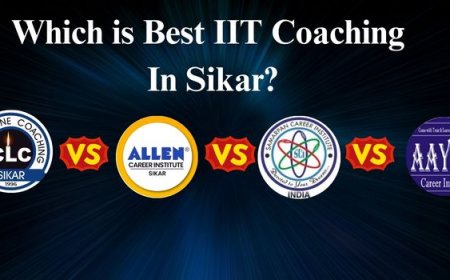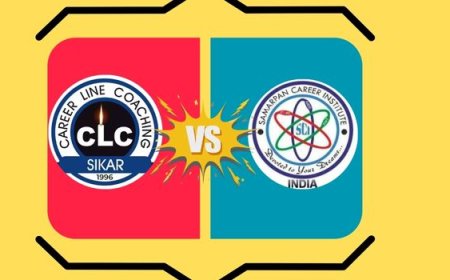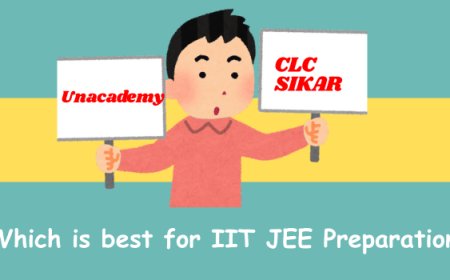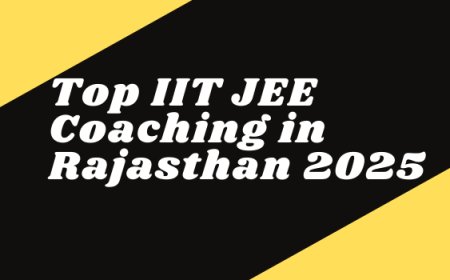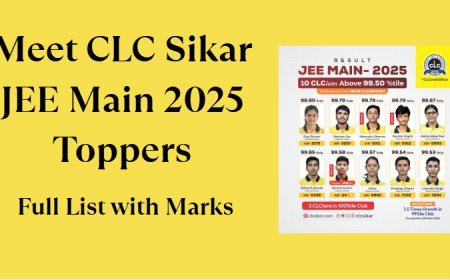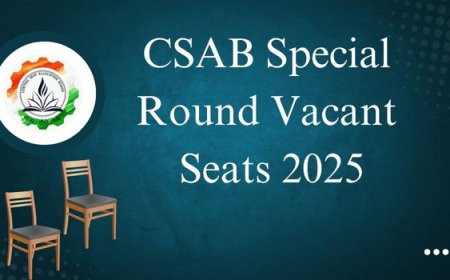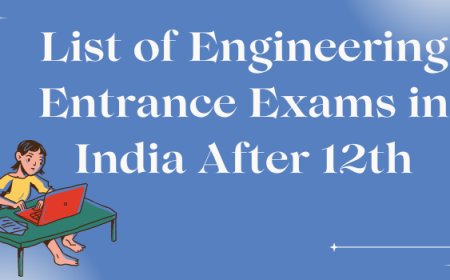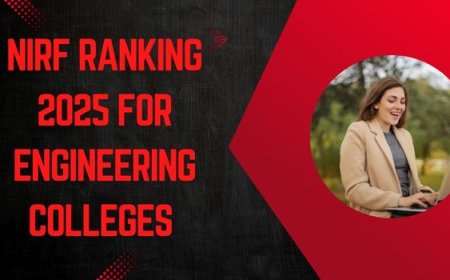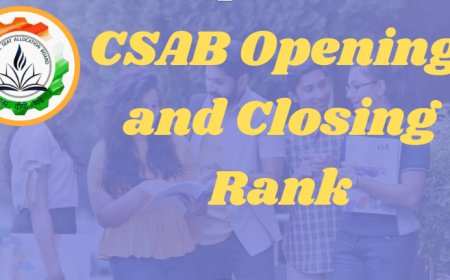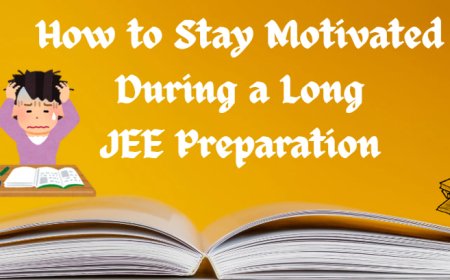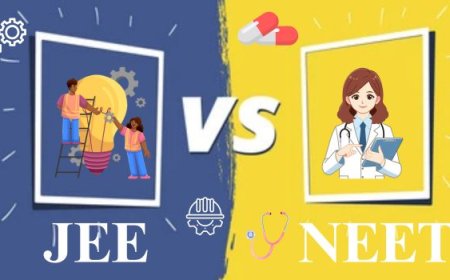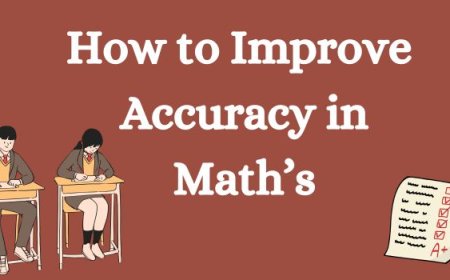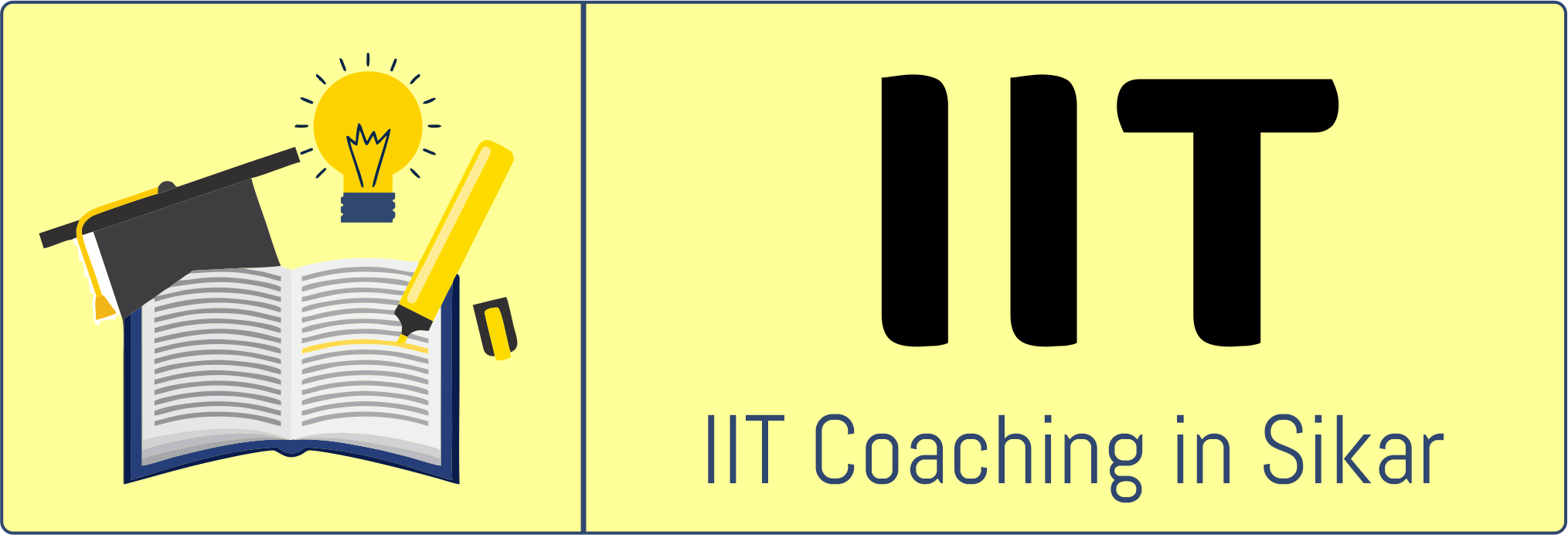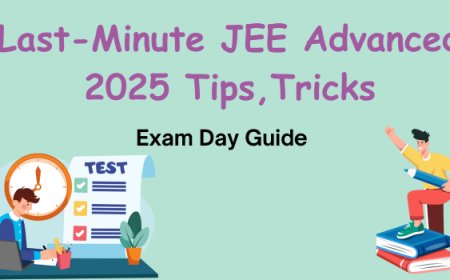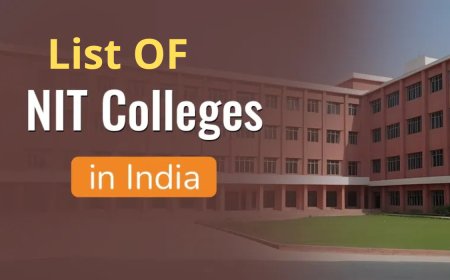1-Year Study Plan for JEE 2026 Aspirants: Complete Preparation Strategy
Crack JEE 2026 with this 1-year study plan covering JEE Main and Advanced, monthly goals, tips, and subject-wise preparation strategy.

1-Year Study Plan for JEE 2026: If you're set on conquering the Joint Entrance Examination on your first attempt, having a smart, strategic, and consistent game plan is essential. This comprehensive guide presents a 1-Year Study Plan for JEE 2026, tailored for both Class 12 students and those taking a gap year. Whether you're aiming for JEE Main 2026 or have your sights set on JEE Advanced 2026, the key to success lies in having a clear and organized strategy. Why choose CLC Sikar for IIT-JEE Coaching in Sikar? Because last year, CLC Sikar coaching gave 500+ JEE aspirants. Students can crack the JEE 2026 Exam with the right resources, like a strong sense of discipline and regular practice. You can boost your score and achieve the best IIT College in India.
Read More: How to Increase Marks in JEE Main 2026: Expert Guide
Why You Need a Study Plan for JEE 2026
JEE is one of the toughest exams in India, with countless students competing for a limited number of seats in prestigious institutions like IITs, NITs, and other top engineering colleges. A solid JEE 2026 Preparation Strategy can help you to get the highest packages from IIT Colleges. Here is the following study plan for the upcoming JEE Main 2026 Exam:
- Methodically cover the extensive syllabus.
- Balance schoolwork and coaching effectively.
- Stay consistent and disciplined.
- Focus on your weak areas and work on them.
Month-Wise 1-Year Study Plan for JEE 2026
First, you need to choose the best JEE Coaching in Sikar that helps you to crack the JEE 2026 EXAM. Here’s a detailed month-by-month breakdown for the JEE Main 2026 Study Plan, which is also great for JEE Advanced:
Phase 1: April to June 2025 (Foundation Building)
- Thoroughly revise Class 11 concepts.
- Concentrate on the NCERT books for Physics, Chemistry, and Maths.
- Tackle basic problems from standard reference books.
- Take weekly practice tests to monitor your progress.
Targets:
- Complete Mechanics (Physics), Mole Concept (Chemistry), and Sets & Functions (Math).
- Build a strong conceptual foundation.
Phase 2: July to September 2025 (Class 12 + Strengthen Class 11)
- Start the Class 12 syllabus while revisiting weak topics from Class 11.
- Set aside daily time slots for revision and mock tests.
- Enroll in a JEE test series to practice time management.
Targets:
- Electrostatics, Chemical Bonding, Differential Calculus.
- Weekly full-syllabus revision tests.
Phase 3: October to December 2025 (Full Syllabus Completion)
- Wrap up the Class 12 syllabus by November.
- Begin solving previous years' JEE papers.
- Focus more on chapters with higher weightage.
Targets:
- Modern Physics, Organic Chemistry, Integral Calculus.
- Complete full-length mock tests every 10 days.
Phase 4: January to March 2026 (Revision + Mock Tests)
- Dedicate this time entirely to revision and practice.
- Analyze your performance and work on improving accuracy.
Targets:
Boost speed, precision, and time management skills.
Review key formulas, concepts, and exceptions.
Subject-Wise Focus Areas
Physics:
Class 11: Mechanics, Thermodynamics, Simple Harmonic Motion
Class 12: Electrodynamics, Modern Physics
Recommended Books: HC Verma, DC Pandey, NCERT
Chemistry:
Physical: Mole Concept, Thermodynamics, Equilibrium
Organic: General Organic Chemistry, Reaction Mechanisms, Named Reactions
Inorganic: NCERT is essential for theory-based questions.
Recommended Books: NCERT, OP Tandon, MS Chauhan
Math:
Class 11: Sets, Quadratic Equations, Permutations & Combinations
Class 12: Calculus, Vectors, 3D Geometry
Recommended Books: RD Sharma (for foundational concepts), Cengage, Arihant Series.
Read More: Most Important Chapters for JEE Mains Physics 2026
Weekly Study Schedule Template for 1-Year Study Plan for JEE 2026
|
Day |
Morning Session |
Afternoon Session |
Evening Session |
|
Monday |
Physics Theory |
Chemistry Numerical |
Maths Practice |
|
Tuesday |
Chemistry Theory |
Math Problem Solving |
Physic MCQS |
|
Wednesday |
Math Concept |
Physics Problem |
Chemistry Revision |
|
Thuresday |
Mock Test |
Paper Analysis |
Weak Topic Practices |
|
Friday |
Math Revision |
Physics Numerical |
Organic Chemistry |
|
Saturday |
Weekly Test |
Test Analysis & Notes |
Light Revision |
|
Sunday |
Doubt Solving |
Concept Recap |
Weekly short note Revision |
JEE 2026 Preparation Strategy Tips
Avoid Backlogs: Stick to the chapter completion schedule.
Practice Mock Tests: They help build speed and accuracy.
Stick to NCERT: NCERT helps you to clear foundational and basic concepts. This is especially crucial for Chemistry.
Revise Regularly: Implement weekly and monthly revision cycles.
Stay Consistent: Even dedicating 6 focused hours a day can yield amazing results.
Recommended Resources
JEE Main Previous Year Questions (PYQs)
NTA Abhyas App for mock tests
Modules from Allen/Career Point/Aakash
Arihant’s 40 Days Crash Course for the final stretch
Conclusion
Success in JEE isn’t just about putting in the most hours; it’s about studying smart. This 1-Year Study Plan for JEE 2026 strikes a great balance between subject-specific preparation, effective time management, and a solid revision strategy. By sticking to this well-organized JEE 2026 Preparation Strategy, students can significantly enhance their chances of acing both JEE Main 2026 and JEE Advanced with a top rank.
Stay consistent, stay focused—and your dream of getting into IIT will be within your grasp!
FAQs
Q1. Is one year enough for JEE preparation?
Ans. Absolutely! With a solid study plan, focus, and consistent practice, one year can be enough to ace JEE Main and Advanced.
Q2. Can I prepare for both JEE Main and Advanced at the same time?
Ans. Yes, preparing for Advanced will naturally cover JEE Main as well. Concentrate on understanding concepts and their applications.
Q3. How many hours should I study each day?
Ans. Ideally, aim for 6–8 hours of Ans. Focused study, incorporating short breaks and weekly mock tests.
What's Your Reaction?







